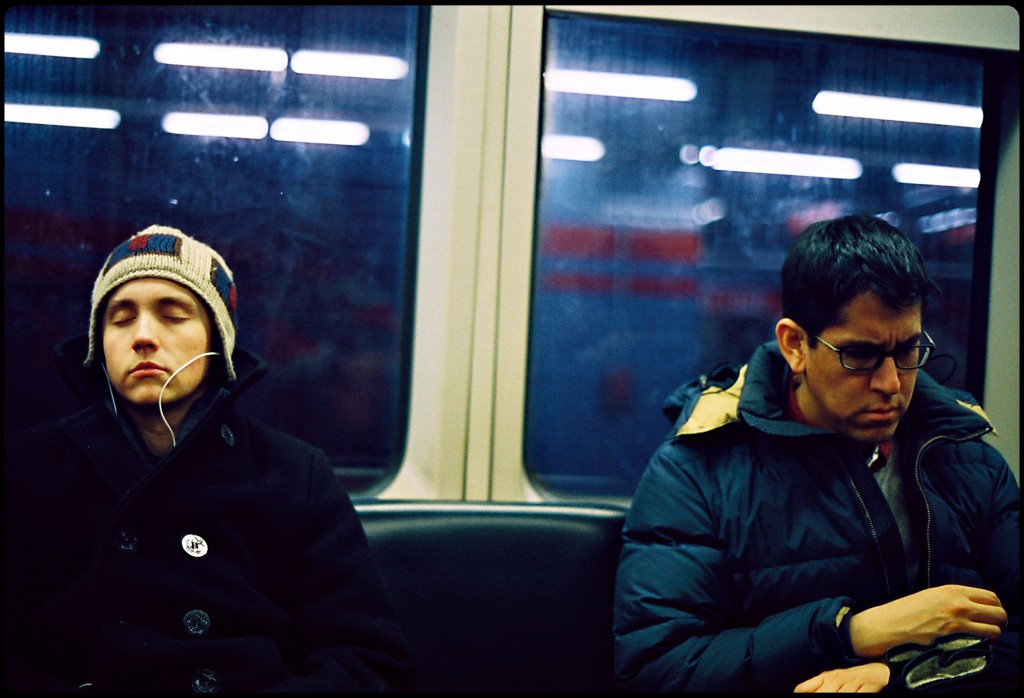

The Atlantic recently ran a great longread from Megan Garber called “Sonic Boom” outlining how digital technology is further transforming the way we interact with sounds or noise that we encounter in our daily lives. Garber profiles throughout history how we’ve interacted with sound as well as current research that seeks to control, contain, and regulate what is commonly referred to as “noise pollution”.
No surprise here but historically, we’ve gotten significantly louder. And with the advancements of human technology increasing the noise around us, we’ve been outpaced at adjusting to the increase in noise pollution. This increase in noise has surprisingly enough led to a long list of side effects and hazards to our health:
“Human technology has outpaced human evolution in this regard; our bodies are navigating a world that we have made louder than our genes anticipated on our behalf. “Intense noise,” researchers have found, “can cause headaches, nausea, sexual impotence, reduced vision, and impaired cardio vascular, gastrointestinal, and respiratory functions.” Living near major roads in New York or London, some studies have suggested, can increase people’s risk of stroke and lower their IQ scores. Music heard at top volume, streaming into our ears through buds and phones, has contributed to the rise of sociocusis, or non-industrial hearing loss. In 2012, research conducted by The New York Times found that city bars regularly reached decibel levels so high that they violated federal workplace safety standards.”
A dim prognosis for something as seemingly harmless as sound! In most situations, this noise pollution and its effects have naturally turned us inward to escape the constant noise of the outside world. These same advances in human technology have not only increased the noise pollution but have dualistically fed our desires for comfort and control by increasingly allowing us to only “hear what we want”:
“The tagline from a recent ad for the ubiquitous Beats by Dre headphones is “Hear What You Want.” This is quietly revolutionary. Today, for the first time in human history, we are not only able to break down the components of what makes a noise noisy; we’re also able to control sonic inputs at the level of the individual human. We’re able to customize our lives with music and podcasts and videos that stream to our ears alone. These playlists are often so intimately calibrated to our desires that even the errant sight of someone else’s soundtrack displayed on a screen—that guy on the bus clicking on to Mumford and Sons’ “I Will Wait”—can seem like a fairly extreme violation of privacy.
Earbuds and headphones, though, don’t simply give us access to personalized soundtracks; they also filter out external noises, transforming sound waves from something implicitly communal to something stubbornly personal. As Trevor Pinch, a professor of Science and Technology Studies at Cornell, put it to me: “Sound has become more thing-like—it’s become more mediated by technology.” We may not have earlids; earbuds, however, get us pretty close.”
Earbuds are the sound control we desire and allow us to create an environment that makes external sound or noise seem intrusive. Don’t want to listen to that man talking loudly on his cell phone in the dentist’s office waiting room? Put in earbuds. Don’t want to have to possibly talk to the person next to you on the bus or subway that keeps giving you that look like she has something to tell you? Put in earbuds. A coworker of mine has even managed to pull off wearing at least one earbud continually throughout the day no matter what the office setting; a feat that, if I’m honest, offers an envious control of the workplace environment. Sound, and especially music, can very easily sway or affect our emotions and not being able to control these emotions tends to feel like an invasion of privacy in a world where more and more of our environmental experience is dictated by us. A world where, yes, every visit to Walgreen’s or the DMV or dinner with family can and will have it’s own personalized playlist.
[youtube=http://youtu.be/SwvSFOEfHJE]
A common criticism or doubt I’ve heard lobbed at Christianity is “Why doesn’t God just open the heavens and announce for all to hear that he is God proving all skeptics wrong?” A viable doubt that I’m sure we’ve all struggled with at some point but in our age it begs the question: Would we even hear it?; or, worse, would we even care to hear it?
Probably not. We need something smaller, something profoundly quieter. Something that in that brief moment at day’s end with head on pillow and the phone finally resting on the nightstand, a foreign quiet and stillness perforates our controlled sound environment. And in that still, calm silence, we just might begin to hear the faint sound of a “still small voice.”

COMMENTS
3 responses to “Noise Pollution and Our Personalized Sound Environments”
Leave a Reply













Great article, Joey! It reminds me of Screwtape in C.S. Lewis’ classic:
“Music and silence – how I detest them both!… No square inch of infernal space and no moment of infernal time has been surrendered to either of those abominable, but all has been occupied by Noise – Noise, the grand dynamism, the audible Noise which alone defense us from silly qualms, despairing scruples and impossible desires. We will make the whole universe a noise in the end. We have already made great strides in this direction as regards the Earth. The melodies and silences of Heaven will be shouted down in the end.”
Thanks Brian! Good call on the Screwtape quote.
The technology that has been developed to filter and clarify noise is nothing short of miraculous.